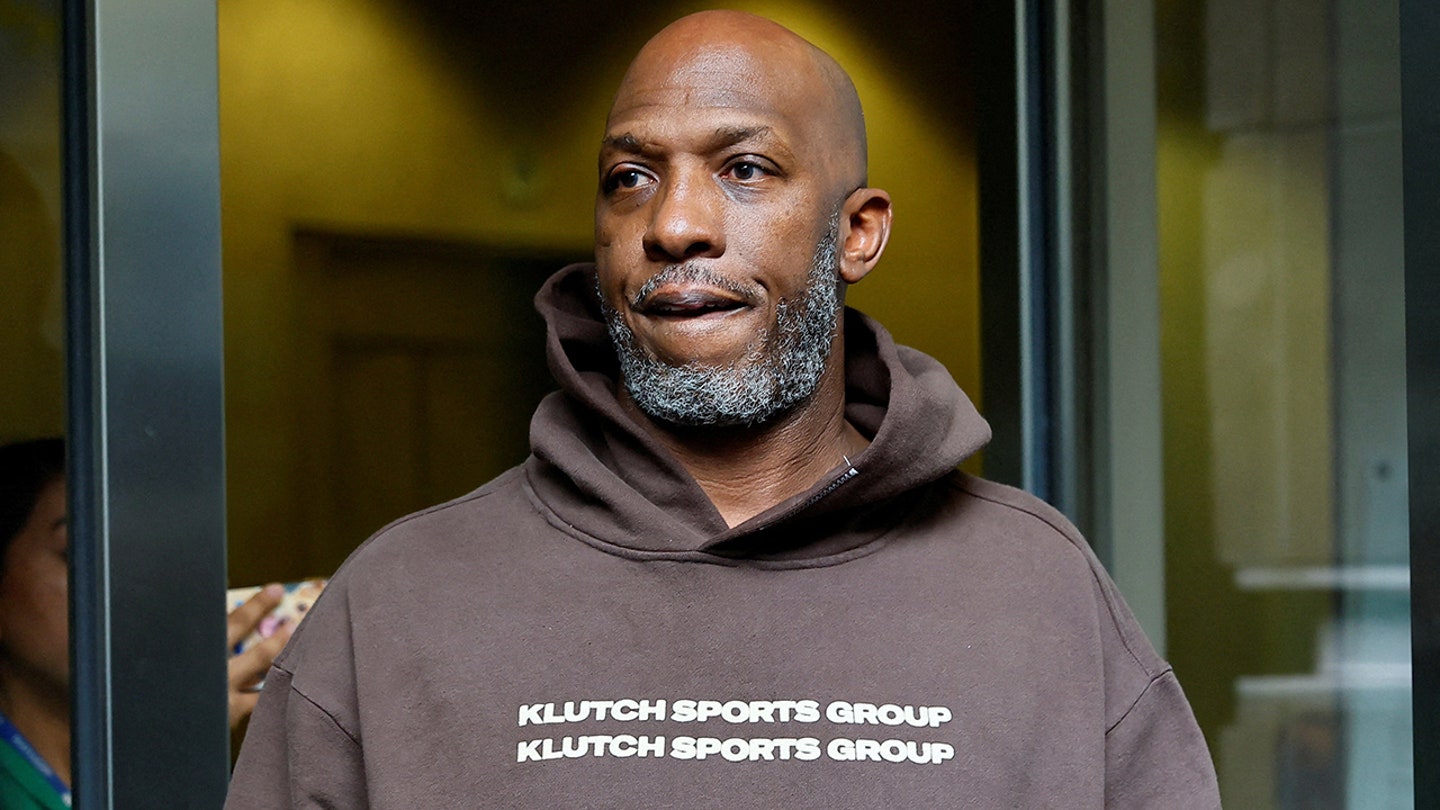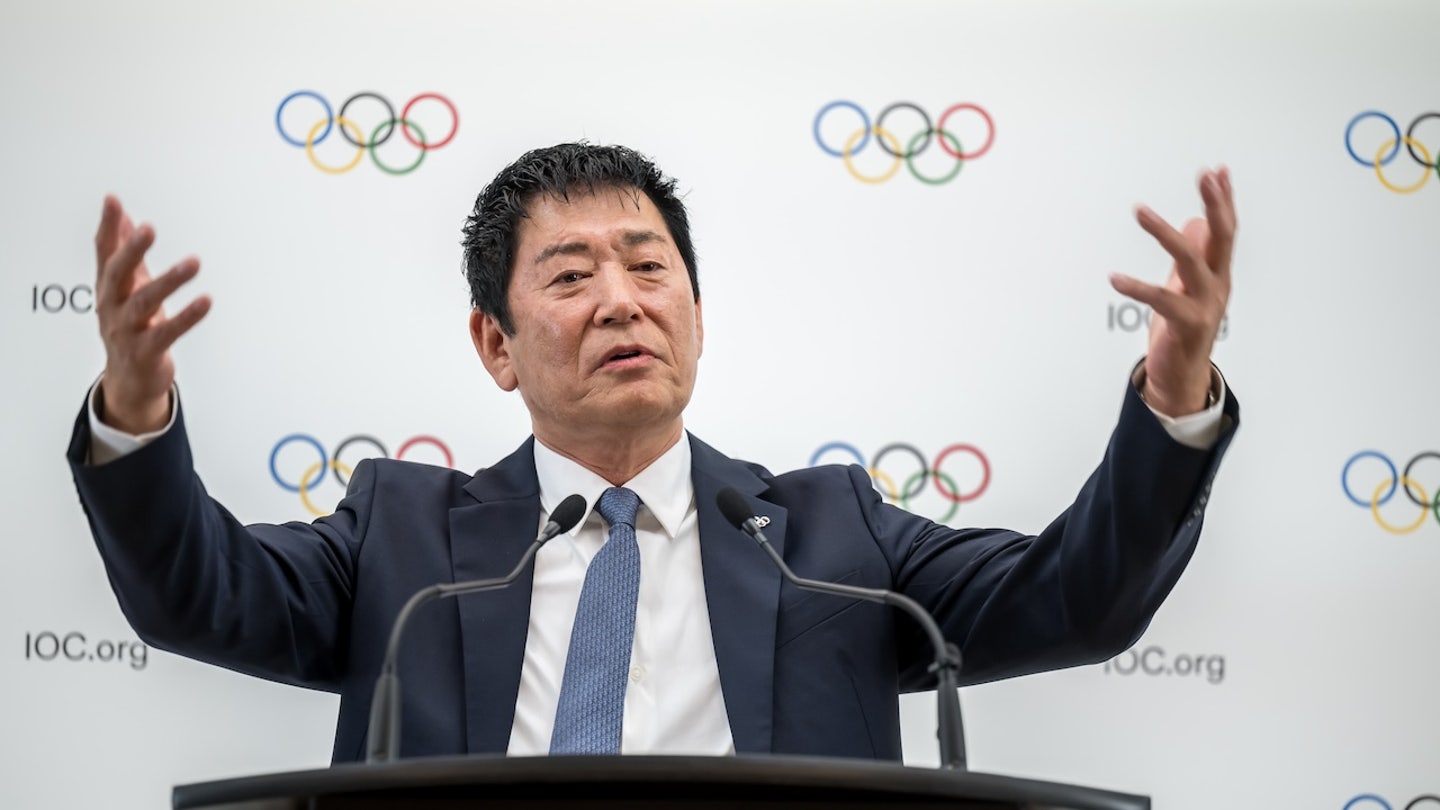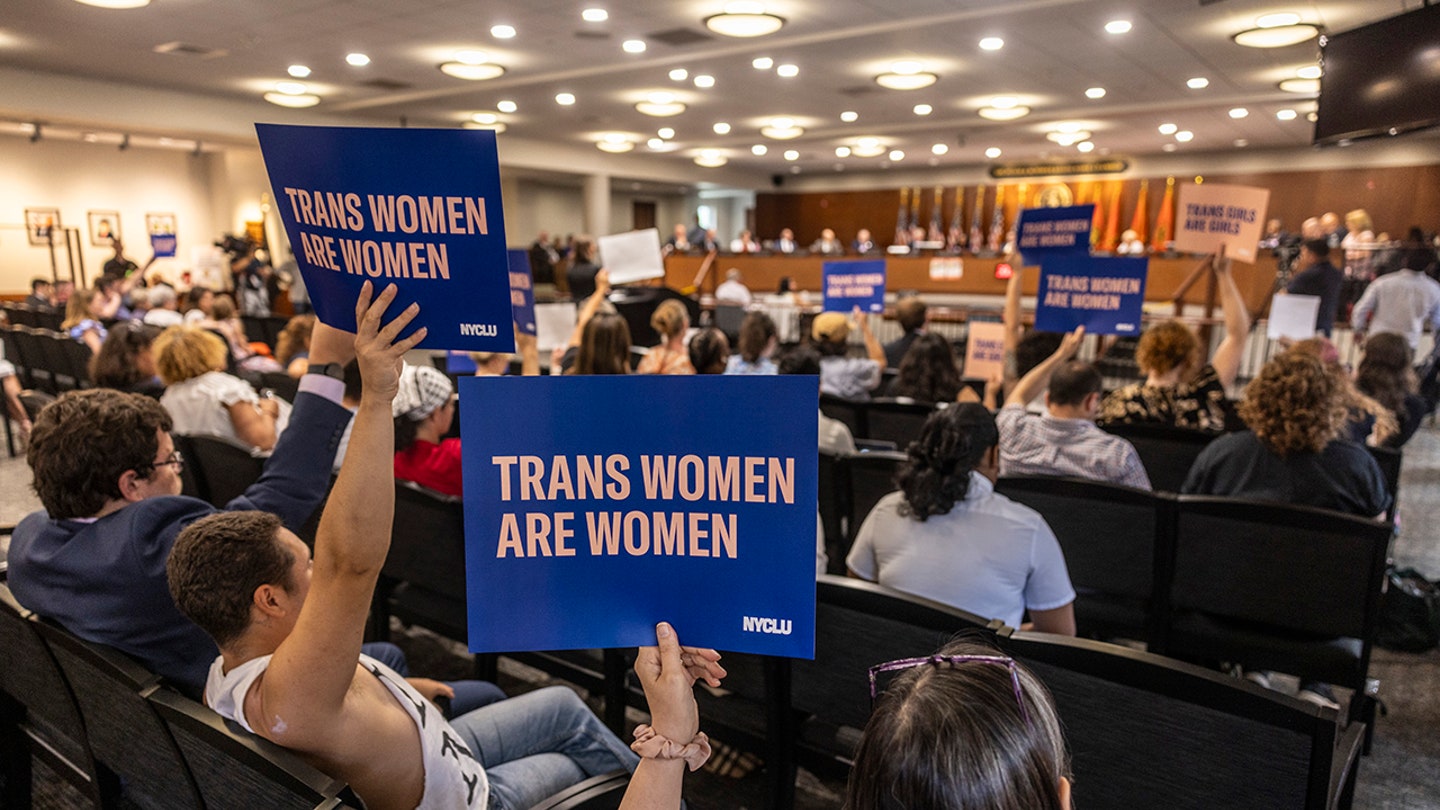
NBA Hall of Famer Chauncey Billups denies wrongdoing after arrest in FBI gambling probe
Entities mentioned:
- Chauncey Billups: Self-preservation, Professional pride, Legacy
- Chris Heywood: Duty, Loyalty, Justice
- FBI: Justice, Duty, Control
- Portland Trail Blazers: Self-preservation, Professional pride, Obligation
Article Assessment:
Credibility Score: 70/100
Bias Rating: 55/100 (Center)
Sentiment Score: 30/100
Authoritarianism Risk: 35/100 (Generally Democratic)
Bias Analysis:
The article presents both the allegations and Billups' defense, showing a relatively balanced approach. It leans slightly right due to its source (Fox News) but maintains a largely neutral tone in reporting the facts.
Key metric: NBA League Integrity
Let me tell you something - this story is a GAME-CHANGER for the NBA! We're talking about a Hall of Famer, folks, a champion point guard now facing the toughest defense of his life! Chauncey Billups is in a fourth-quarter struggle against the FBI, and he's got to bring his A-game to beat these charges! The Trail Blazers have benched their star coach faster than a technical foul, showing they're not messing around when it comes to protecting the integrity of the game. This is a FULL COURT PRESS by the feds, and Billups is going to need every ounce of that championship mentality to come out on top. The league's reputation is on the line here, and they can't afford to fumble this play. It's crunch time for the NBA, and how they handle this could be the difference between a slam dunk for integrity or an air ball that damages the sport for years to come!

Charles Barkley, Kenny Smith clash over FBI gambling probe allegedly involving NBA figures: 'That's stupidity'
Entities mentioned:
- Charles Barkley: Righteousness, Moral outrage, Professional pride
- Kenny Smith: Duty, Obligation, Wariness
- NBA: Self-preservation, Integrity, Control
- FBI: Justice, Control, Duty
- Chauncey Billups: Greed, Self-preservation, Fear
- Terry Rozier: Greed, Self-preservation, Fear
Article Assessment:
Credibility Score: 75/100
Bias Rating: 50/100 (Center)
Sentiment Score: 25/100
Authoritarianism Risk: 30/100 (Generally Democratic)
Bias Analysis:
The article presents multiple viewpoints from different NBA analysts, allowing for a balanced discussion. It also includes factual information about the FBI investigation and charges, maintaining a neutral stance.
Key metric: NBA League Integrity
Let me tell you something - this story is a GAME-CHANGER for the NBA! We're talking about a FULL-COURT PRESS by the FBI that's left the league scrambling on defense. Billups and Rozier, once star players, are now facing their toughest opponents yet - federal charges! This is like watching a championship team implode from the inside. The NBA thought they had a slam dunk with their gambling policies, but now they're fumbling the ball big time. Barkley and Smith are going at it like it's the fourth quarter of Game 7, folks! Barkley's playing offense, calling out 'stupidity', while Smith is on defense, talking about addiction. But let me tell you, this isn't just a foul - this could be a career-ending move for some of these players. The league's integrity is on the line, and they need to step up to the plate and knock this one out of the park if they want to maintain their championship mentality. This is RIDICULOUS, and I'm telling you right now, the NBA needs to tighten up their defense or they'll be watching their credibility go up in smoke faster than a buzzer-beater!

Dolphins' Tua Tagovailoa cites height as one reason for Jaylen Waddle's lack of targets in latest loss
Entities mentioned:
- Tua Tagovailoa: Self-preservation, Professional pride, Obligation
- Jaylen Waddle: Competitive spirit, Recognition, Ambition
- Mike McDaniel: Determination, Unity, Loyalty
- Miami Dolphins: Competitive spirit, Redemption, Unity
Article Assessment:
Credibility Score: 75/100
Bias Rating: 45/100 (Center)
Sentiment Score: 35/100
Authoritarianism Risk: 20/100 (Strongly Democratic)
Bias Analysis:
The article presents a balanced view of the situation, including quotes from both the quarterback and coach. It doesn't lean towards criticizing or defending any particular party involved.
Key metric: NFL Team Performance
Ladies and gentlemen, we're witnessing a FOURTH QUARTER MELTDOWN of epic proportions! The Miami Dolphins are fumbling their season away faster than a greased pigskin! Let me tell you something, Tua Tagovailoa's height excuse is like claiming you lost the Super Bowl because your cleats were untied! This is RIDICULOUS! The Dolphins' offense is playing like they're stuck in quicksand, and Tagovailoa's inability to see his receivers is a GAME-CHANGING HANDICAP! It's like trying to throw a Hail Mary with a blindfold on! Coach McDaniel needs to step up to the plate and make some championship-caliber adjustments, or this team is headed for the basement of the NFL standings! The clock is ticking, and the Dolphins need to find their winning formula FAST or risk being benched for the rest of the season!

Controversial former NFL lineman rips Dolphins amid poor start
Entities mentioned:
- Richie Incognito: Indignation, Righteousness, Professional pride
- Mike McDaniel: Self-preservation, Determination, Control
- Tua Tagovailoa: Self-preservation, Competitive spirit, Obligation
- Miami Dolphins: Competitive spirit, Pride, Ambition
- Stephen Ross: Legacy, Pride, Control
- Chris Grier: Self-preservation, Professional pride, Control
Article Assessment:
Credibility Score: 55/100
Bias Rating: 55/100 (Center)
Sentiment Score: 20/100
Authoritarianism Risk: 30/100 (Generally Democratic)
Bias Analysis:
The article presents multiple viewpoints, including critical ones, but relies heavily on a controversial former player's opinions. It balances team performance facts with subjective commentary.
Key metric: NFL Team Performance
Let me tell you something, folks - this is a FOURTH QUARTER DISASTER for the Miami Dolphins! They're fumbling the ball on their own 1-yard line and the clock is ticking down! Incognito is coming off the bench like a heat-seeking missile, absolutely BLASTING his former team! Tua's throwing more picks than a lumberjack convention, and Coach McDaniel's playbook looks like it was written by a Pop Warner reject! This is RIDICULOUS! The Dolphins' locker room is imploding faster than a house of cards in a hurricane, and let me tell you, Stephen Ross needs to suit up and get in the game before this franchise sinks deeper than the Mariana Trench! It's crunch time, and right now, the Dolphins are playing like they're stuck in quicksand with lead cleats!

What we know about Israeli soccer fans being banned from attending Maccabi Tel Aviv’s match against Aston Villa
Entities mentioned:
- Maccabi Tel Aviv: Self-preservation, Pride, Unity
- Aston Villa: Obligation, Security, Professional pride
- Birmingham Safety Advisory Group: Security, Control, Duty
- West Midlands Police: Security, Control, Duty
- UK Government: Unity, Justice, Security
Article Assessment:
Credibility Score: 75/100
Bias Rating: 50/100 (Center)
Sentiment Score: 30/100
Authoritarianism Risk: 40/100 (Generally Democratic)
Bias Analysis:
The article presents multiple viewpoints and quotes from various parties involved. It maintains a neutral tone while reporting on a sensitive issue, balancing security concerns with concerns about discrimination.
Key metric: Social Cohesion
Let me tell you something, folks - this is a GAME-CHANGING play in the world of international soccer! We're seeing a real clash of titans here, with Maccabi Tel Aviv making a bold fourth-quarter move by declining their away game tickets. It's like they're forfeiting their offensive strategy to protect their team, showing a true championship mentality in the face of adversity. The UK government is trying to step up to the plate, but they're facing a tough defense from local authorities. This is a high-stakes match where security concerns are acting like a defensive line, blocking the free flow of fans. It's a test of teamwork between nations, clubs, and law enforcement, and right now, it looks like everyone's playing defense. The real question is: who's going to make the game-winning play to bring unity back to the pitch?

The NBA is at its international peak, but British players are still struggling to break through
Entities mentioned:
- NBA: Competitive spirit, Recognition, Influence
- Amari Williams: Ambition, Determination, Recognition
- Boston Celtics: Competitive spirit, Legacy, Pride
- Tosan Evbuomwan: Ambition, Determination, Professional pride
- British Basketball Federation: Control, Self-preservation, Obligation
Article Assessment:
Credibility Score: 85/100
Bias Rating: 50/100 (Center)
Sentiment Score: 45/100
Authoritarianism Risk: 20/100 (Strongly Democratic)
Bias Analysis:
The article presents a balanced view of the situation, giving voice to multiple perspectives. It relies on factual information and direct quotes from relevant sources without pushing a particular agenda.
Key metric: International Player Development
Let me tell you something - this story is a GAME-CHANGER for British basketball! The NBA's international roster is EXPLODING like a fourth-quarter scoring run, but British players are still warming the bench. Amari Williams and Tosan Evbuomwan are stepping up to the plate, trying to hit a home run for UK hoops. But folks, the British basketball system is playing defense against itself! With a governance crisis that's got them fumbling the ball, they're struggling to even stay on the court. The UK government and NBA are tag-teaming with a £10 million assist, but will it be enough to turn this game around? I'm telling you right now, British basketball needs a championship mentality to compete on the global stage. They've got the raw talent, but without the proper training facilities and development pipeline, they're like a team without a playbook. It's RIDICULOUS that these athletes have to create their own plays just to get in the game! The clock is ticking, and if British basketball doesn't make some clutch moves soon, they might find themselves watching from the sidelines as the rest of the world dominates the hardwood!

San Jose Sharks apologize for ‘offensively worded message’ displayed during Hispanic Heritage Night
Entities mentioned:
- San Jose Sharks: Duty, Loyalty, Professional pride
- Immigration and Customs Enforcement (ICE): Control, Duty, Security
- Jessica Clark: Moral outrage, Loyalty, Indignation
- Sharks Sports & Entertainment: Self-preservation, Obligation, Unity
Article Assessment:
Credibility Score: 75/100
Bias Rating: 45/100 (Center)
Sentiment Score: 25/100
Authoritarianism Risk: 20/100 (Strongly Democratic)
Bias Analysis:
The article presents a balanced view of the incident, including the team's apology and fan reactions. It doesn't lean heavily towards criticizing or defending the team, maintaining a neutral stance.
Key metric: Public Perception of Professional Sports Teams
Let me tell you something - this is a MASSIVE FUMBLE by the San Jose Sharks! They've skated right into a PR nightmare that's gonna take some serious overtime to fix. The team was supposed to be celebrating Hispanic Heritage Night, but instead, they've scored an OWN GOAL with that offensive scoreboard message! This is the kind of unforced error that can bench a franchise's reputation faster than you can say 'penalty box.' The Sharks' front office is now in full defensive mode, trying to clear the puck out of their zone and regain control of the narrative. But I'm telling you right now, they're gonna need a hat trick of apologies, investigations, and community outreach to get back in the good graces of their fans. This is a critical moment where the Sharks need to show they've got that championship mentality off the ice as well as on it. They need to step up to the plate and knock this apology out of the park, or they risk losing the home-ice advantage they've built with their Hispanic fanbase. It's crunch time, folks, and all eyes are on the Sharks to see if they can pull off a fourth-quarter comeback in the court of public opinion!

Indonesia's treatment of Israeli gymnasts prompts criticism but also acceptance from sport's global chief
Entities mentioned:
- Indonesian government: Control, Security, Unity
- International Gymnastics Federation (FIG): Unity, Obligation, Professional pride
- Morinari Watanabe: Duty, Diplomacy, Unity
- International Olympic Committee (IOC): Justice, Unity, Professional pride
- Israeli national gymnastics team: Competitive spirit, Recognition, Self-respect
Article Assessment:
Credibility Score: 75/100
Bias Rating: 55/100 (Center)
Sentiment Score: 30/100
Authoritarianism Risk: 55/100 (Mixed/Neutral)
Bias Analysis:
The article presents multiple viewpoints, including those of FIG, IOC, and the Israeli team. While it leans slightly towards criticizing Indonesia's decision, it also presents Indonesia's security justification.
Key metric: International Sports Participation Equality
Let me tell you something - this situation is a GAME-CHANGER, folks! We're seeing a major PENALTY FLAG thrown on the field as Indonesia's government blocks Israel from competing in the gymnastics World Championships. This is like denying a team their shot at the playoffs! The FIG and IOC are trying to play referee, but they're caught between a rock and a hard place. On one side, we've got the Indonesian government playing defense, citing security concerns. On the other, we've got the Israeli team being denied their chance to step up to the plate. The FIG is walking a tightrope here, folks, trying to balance fair play with player safety. But let's be clear - in the world of international sports, EVERYONE should get their shot at glory. This is a fourth-quarter decision that could have major implications for future tournaments. The question now is: will other countries follow Indonesia's playbook, or will the sports world unite to ensure a level playing field for all? This is the kind of controversy that can change the whole game, and I'm telling you right now, we'll be feeling the aftershocks of this decision for seasons to come!

Trans athlete researcher rejects open category proposal at conference, says most would 'quit their sport'
Entities mentioned:
- Joanna Marie Harper: Determination, Professional pride, Justice
- Jon Pike: Fairness, Professional pride, Duty
- Transgender Athletes: Recognition, Self-respect, Competitive spirit
- State Governments: Control, Fairness, Obligation
Article Assessment:
Credibility Score: 70/100
Bias Rating: 55/100 (Center)
Sentiment Score: 40/100
Authoritarianism Risk: 35/100 (Generally Democratic)
Bias Analysis:
The article presents viewpoints from both sides of the debate, quoting experts with opposing views. However, it gives slightly more space to Harper's perspective, potentially leaning towards a more trans-inclusive stance.
Key metric: Gender Equality in Sports Participation
Let me tell you something, folks - this transgender athlete debate is turning into a FULL-COURT PRESS! We've got players from both teams bringing their A-game to this heated match-up. On one side, we've got Joanna Marie Harper, a real MVP for trans athletes, stepping up to the plate and REJECTING the idea of an open category faster than a power forward swats away a weak layup attempt. She's saying loud and clear that forcing trans women to compete with cisgender men is like asking a lightweight boxer to step into the ring with heavyweights - it's just not a fair fight! But hold on to your jerseys, because on the other side, we've got Jon Pike calling for a whole new playing field with this open category idea. It's a bold strategy, Cotton, let's see if it pays off for him! Meanwhile, state governments are running their own defensive formations, with 29 states already putting up a WALL against trans athletes in women's sports. This is a high-stakes game, folks, and we're only in the second quarter. The scoreboard on gender equality in sports is lighting up like it's championship night, and I'm telling you right now, this match is going into overtime!

UK authorities seek to reverse decision to ban Maccabi Tel Aviv fans from Villa game
Entities mentioned:
- British officials: Justice, Security, Duty
- Maccabi Tel Aviv: Competitive spirit, Pride, Self-respect
- Keir Starmer: Justice, Righteousness, Unity
- UEFA: Fairness, Unity, Professional pride
- Aston Villa: Security, Professional pride, Obligation
- West Midlands Police: Security, Duty, Wariness
- Jack Angelides: Indignation, Justice, Competitive spirit
Article Assessment:
Credibility Score: 75/100
Bias Rating: 45/100 (Center)
Sentiment Score: 35/100
Authoritarianism Risk: 25/100 (Generally Democratic)
Bias Analysis:
The article presents multiple perspectives, including government officials, police, and team representatives. It balances security concerns with criticism of the ban, maintaining a relatively neutral stance.
Key metric: International Sports Relations
Let me tell you something, folks - this is a GAME-CHANGING play in the world of international soccer! We've got a real defensive struggle going on between British officials and Maccabi Tel Aviv fans. The UK is trying to pull off a last-minute substitution, reversing that fan ban faster than a striker on a breakaway! But make no mistake, this isn't just about soccer - it's about fair play and sportsmanship on a global scale. The Prime Minister is stepping up to the plate, calling an audible to overturn what he sees as the wrong call. UEFA's throwing the challenge flag, urging the Brits to let those Israeli fans into the stadium. It's fourth and long for diplomacy, and they're going for it! This is the kind of high-stakes match that separates the champions from the also-rans in international relations. I'm telling you right now, how they handle this could be the difference between a gold medal in global cooperation and a red card for discrimination. The clock is ticking, the pressure's on, and the whole world is watching to see if they can pull off this crucial play before the final whistle!